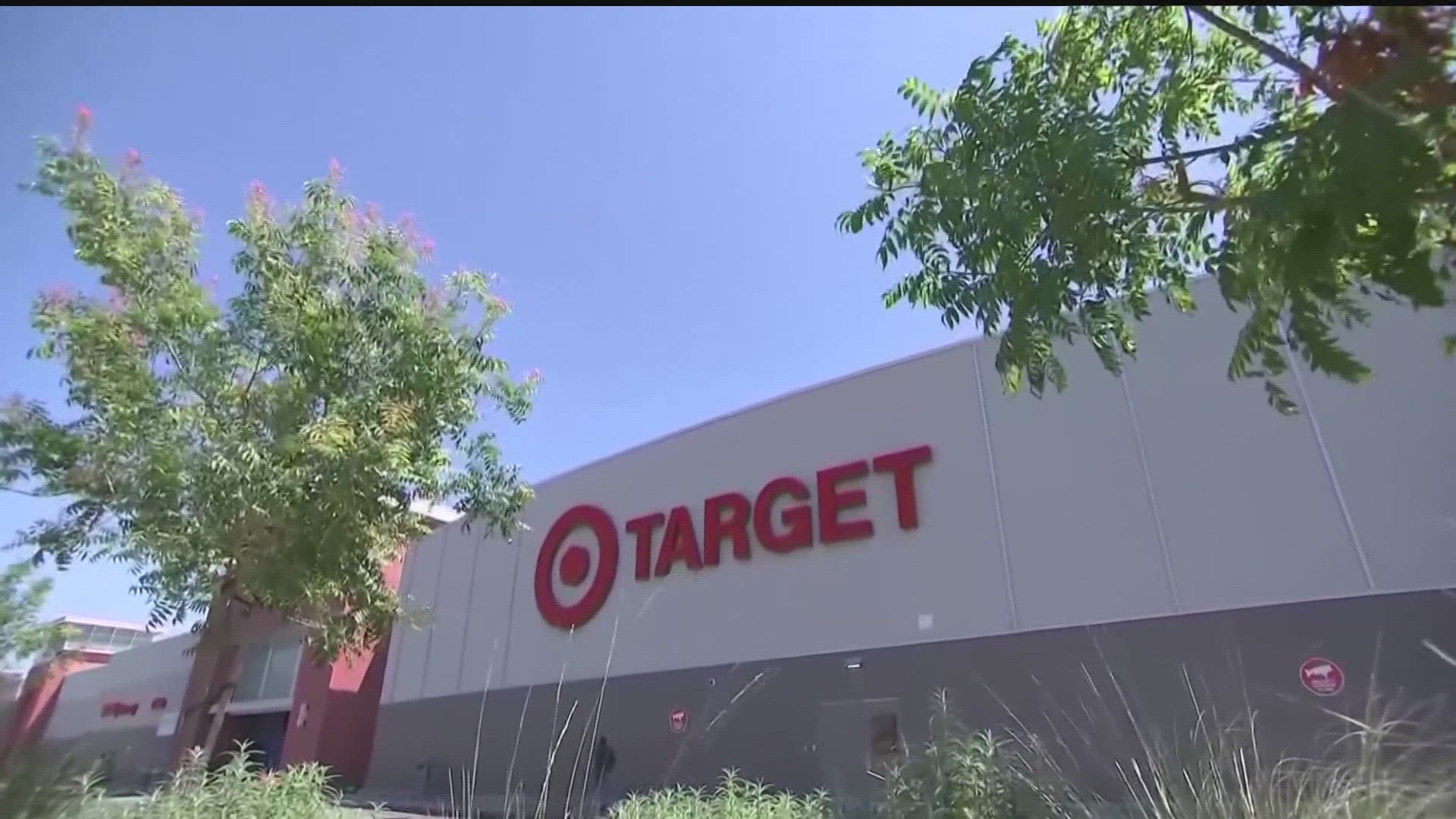MINNEAPOLIS — Minneapolis-based Target announced on Tuesday that it will close a handful of stores across four states due to crime.
Nine stores in California, New York, Oregon and Washington are shutting down next month "because theft and organized retail crime are threatening the safety of our team and guests," according to a statement from the company. None of the closings are in Minnesota.
However, there is a new law in Minnesota aimed directly at cutting down on this kind of crime.
Governor Walz just signed that law into effect in August. The MN Organized Retail Crime Association (MNORCA) President Cody Johnson says it separates simple shoplifting from organized retail crime, meaning when thieves re-sell what they steal.
It gives prosecutors the ability to aggregate the total value of stolen goods over a given time and defines the crime as involving two people. Criminals then face stiffer charges instead of misdemeanors, and in some cases, could be sentenced up to 15 years in prison.
"It’s extremely important and it’s kind of to protect this house," said Johnson. "We’re protecting Minnesota and saying no more."
On Wednesday, MNORCA held it's first statewide conference since the new law went into effect.
"It's a chance to educate the retailers, the law enforcement, the attorneys that are in attendance on how to use this law and use it effectively right from the get go," Johnson said.
Eagan Police Detective Dan Spiess has investigated some of the biggest retail crime rings in the metro area in recent months, including thefts from several Best Buy stores that resulted in several arrests outside of Minnesota. He says there's a clear difference between these crimes and simple shoplifting.
"It is these organized groups where they have two, three, four, five people going into a store," Spiess said. "Some are distracting, some are causing issues in one part of the store so other people can be doing the stealing in a different part of the store. This is like their job. They go out, they steal, they sell, this is how they make their money, they wake up the next day and they do it again."
Spiess says that level of organization requires organization from law enforcement, prosecutors and retailers, which is why he attended the conference.
Spiess: "The cases that I'm currently working on, they've hit all over the metro," Spiess said. "So now it's just putting all of those pieces together from multiple retailers, multiple dates and then providing that to the attorney's office in order for them to charge this new statute."
Kent Erdahl: "That's got to be a level of complication that takes a lot of time to unwind."
Detective Spiess: "It does take time, and it also takes effort, and that's one of the other things that this conference does. It's just bringing people together, so now an Eagan Police officer has contacts at x, y, and z retailer; or I'm now communicating more with the analysts that are in the west metro or east metro or north metro. It all comes down to the information sharing."
Johnson says that level of communication is critical to making the law work as intended. He points to New York, Oregon and Washington, which all have Organized Retail Crime laws on the books, but still have Target closing stores in some of their biggest markets.
"Really, what we're seeing there is it's a little too late," Johnson said. "These groups are organized, they do almost counterintelligence. They know where they can get away with these things and when you hear a prosecutor or a city or a mayor say something like we won't charge these crimes, that just is an invitation for these criminal groups to go there and raise havoc."
Before the big decision was made, Target officials said they tried to stop the thieves by adding more security guards and locking up merchandise prone to theft in display cases.
"We know that our stores serve an important role in their communities, but we can only be successful if the working and shopping environment is safe for all," Target officials said in the release.
Target highlighted that while it was closing stores because of organized retail crime, the retailer continued to combat theft by partnering with the U.S. Department of Homeland Security's Homeland Security Investigations (HSI) division.
The mega-retailer listed its crime-fighting efforts, including investing in cyber defense, developing new criminal detection tools and supporting other resources to find solutions.
Other retailers are also investing in better technology to help identify suspects and taking a single-door approach to further curb crime.
"We're starting to see the long game being played rather than just apprehending shoplifters at the exit doors," said Johnson. "If anything it's a deterrent."
Target said it would offer all "eligible team members" a job at another location.
The following stores will be closing effective Oct. 21:
New York City Market:
- Harlem: 517 E 117th Street
Seattle Market:
- Seattle University Way: 4535 University Way NE
- Seattle Ballard: 1448 NW Market St, Ste 100
San Francisco/Oakland Market:
- SF Folsom and 13th St: 1690 Folsom St
- Oakland Broadway & 27th: 2650 Broadway
- Pittsburg: 4301 Century Blvd
Portland Market:
- Portland Galleria: 939 SW Morrison St
- Portland Powell: 3031 SE Powell Blvd
- Portland Hollywood: 4030 NE Halsey St

